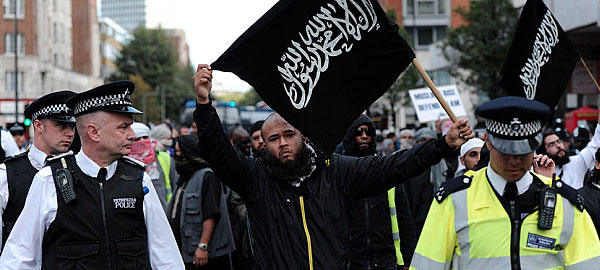Religious faith, when manipulated by the unscrupulous, is the most divisive of human impulses. Western democracies manage such fissures by safeguarding freedom of worship, conscience and belief, while ensuring that no one is deprived of civic rights on account of their religion.
Tragically, Britain is importing a conflict from the Middle East that long predates, and has yet to be tamed by this Jeffersonian principle of religious liberty. Shia mosques are having to increase security through fear of attack from extremists supporting Islamic State. Sunni radicals are preaching sectarian violence against Shia Muslims. The hatred is reciprocated by radical Shia preachers stoking discord.
This is incitement to crime, with the peculiar virulence that religious absolutism brings. Just as policymakers and the police need to be aware of the threat that theocratic extremism poses to religious minorities in Britain, so they must crack down on the inflammatory preaching and acts of violence in this intra-religious dispute.
Britain has long experience of sectarian conflict. The modern politics of Northern Ireland, have been determined by a national dispute that closely maps religious affiliation. In other parts of the country, notably in Glasgow, divisions between Catholics and Protestants historically run deep. Yet confessional differences in western democracies have generally sublimated into politics.
Members of a constitutional society share the overriding characteristic of common citizenship under the rule of law. It is not only a threat to life and civil order when religious conflict breaks into violence: it is alien to the values of British society. Hence, legislators and the security services must not assume that religious sectarianism is some idiosyncratic cultural feature that has no bearing on wider society. Religious hatred is an incubator of fanaticism. The longer it goes unchecked, the greater are its destructive consequences.
Whereas divisions in western Christendom date from the Reformation, the split between Shia and Sunni Muslims dates almost from the origins of Islam. Therein lies its peculiar ferocity. The division reflects an early dispute on who would succeed the Prophet Muhammad as leader of the emerging faith on his death in the 7th century. While Sunni Muslims are far the more numerous denomination, making up about 85 per cent of Muslims worldwide, the division between these branches of a common faith runs through the Middle East from Lebanon in the north to the Gulf.
The conflict has been given added impetus from the civil war in Syria. President Assad’s brutal regime is the client-state of Iran, and is defended by Shia militias that take their orders from Tehran. The terrorists of Islamic State are Sunni Muslims.
In The Times today, we report the hate-filled rhetoric of radical preachers on both sides of the division who travel through Britain seeking to terrorise their co-religionists. These are not isolated figures. And their sermons and diatribes are vitriolic. A Sunni cleric, for example, condemns Shia Muslims as “not just kafir [non-believers], they are kufoor [a worse category of non-believer]”.
Islamist demagoguery inspired suicide terrorists to attack public transport in London a decade ago. The fruits of fanaticism are being unleashed inwards, towards British Muslims, as well as outwards, towards other communities. It will escalate disastrously if British society averts its eyes.

